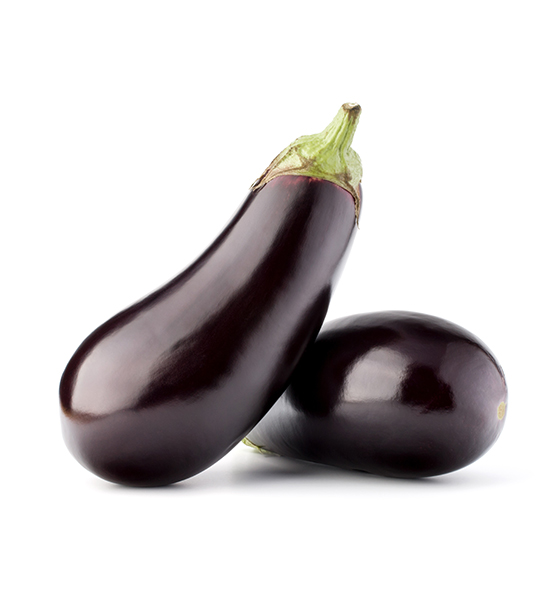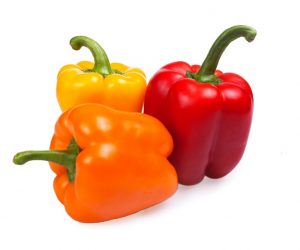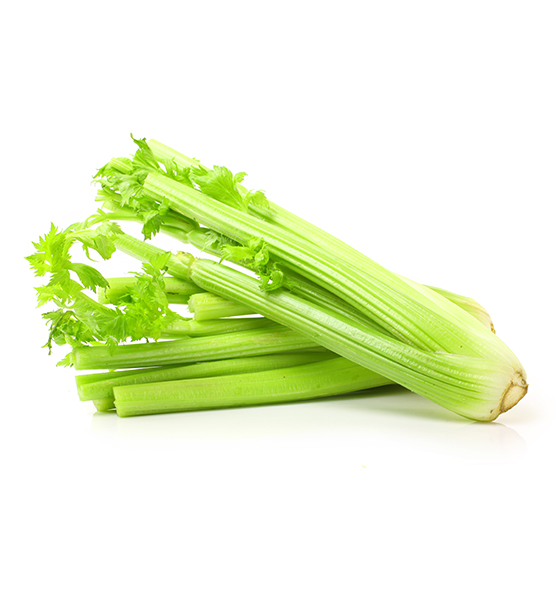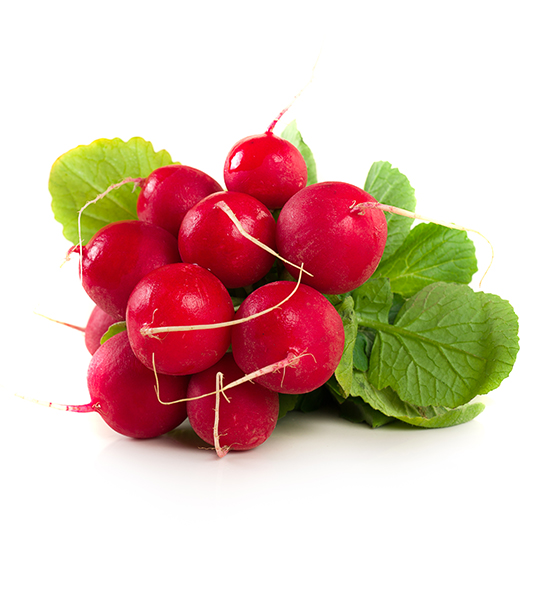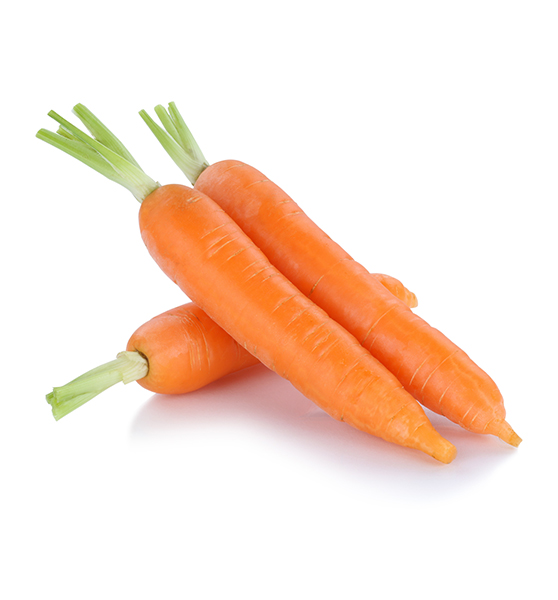Eggplant
Eggplant has a shiny dark purple, green or white skin. Baby aubergines are small and shaped like a pear. The flesh is white, smooth and contains numerous soft seeds which are edible and has a bit of a bitter taste. Vitamins can be found in aubergines in a quite diversity: B vitamins, vitamin E, provitamin A in small quantities and of course vitamin C (at rates ranging between 2 and 8 mg per 100 g, depending on varieties and seasons). With regard to the energy intake, eggplants are among vegetables with the least calories, just about 18 kilocalories (75 kilojoules) per 100 grams (similar to tomatoes, endives or lettuce). Moreover, they are rich in water (over 92% on average).Eggplants contribute to the intake of useful compounds (minerals, fibre, vitamins) without significantly increasing the energy intake, having a high nutritional density. To take advantage of this property it is obviously preferable to cook them with minimal fat. Studies in the United States and Austria have shown that the eggplant was able to limit the increase in blood lipids and cholesterol, an increase that usually follows the absorption of fat (and foods high in fat). According to researchers, eggplants contain substances (fibres in particular) which have the property to keep the cholesterol in the lumen of the intestine. This would enable cholesterol to be expelled without being reabsorbed by the mucous membrane, and then dragged into the bloodstream.
DETAILS
- Weight: per pease – 225-450gr
- Packaging: cartons of 5 kg net
- Recommended storage & transport temperature: 12 °C
- Relative Humidity: 95
- Freezing Temperature: -0.8°C

